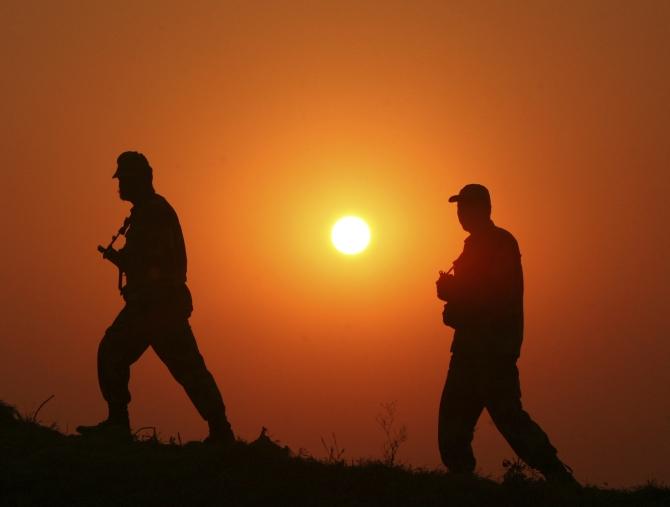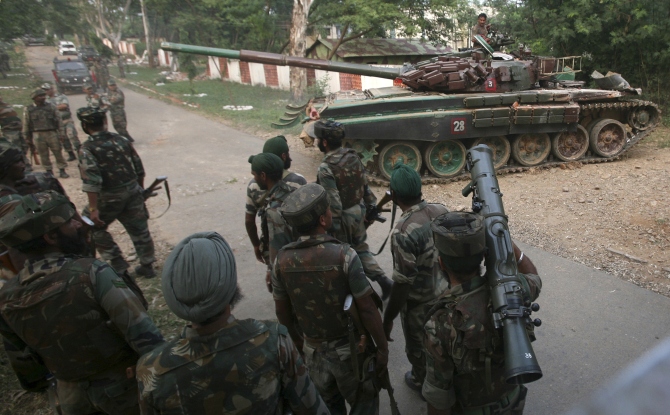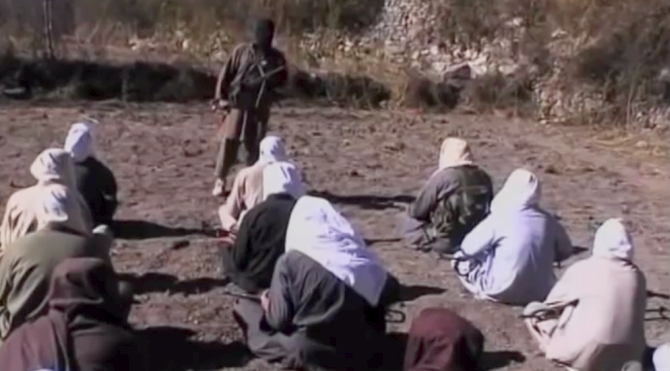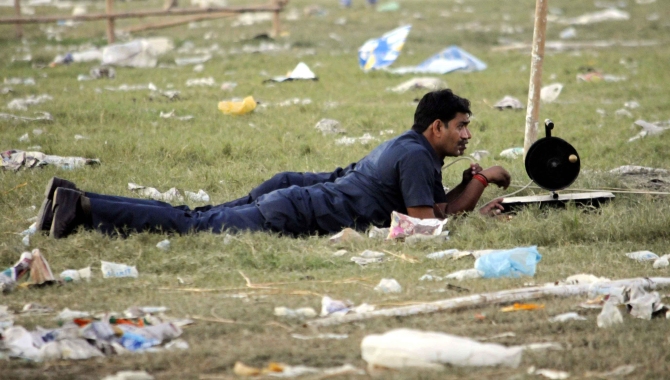Photographs: Mukesh Gupta/Reuters Vicky Nanjappa
The ISI has 500 terrorists waiting to cross over to India.
On his visit to Leh this week, Prime Minister Narendra Modi accused Pakistan of waging a proxy war against India. Modi's statement was not mere rhetoric, but based on actual evidence.
Modi's diplomacy at his May 26 swearing-in ceremony and after -- meeting with Pakistan Prime Minister Nawaz Sharif -- has not gone down too well with terror groups in Pakistan controlled by the Inter-Services Intelligence.
The first indications of increased terror activity came when Lashkar-e-Tayiba chief Muhammad Saeed met with ISI representatives to discuss terror operations in Kashmir, intelligence sources told this correspondent.
Please read NEXT to read further...
How the ISI plans to wage war in India
Image: An Indian Army tank is deployed during an operation to flush out terrorists at an army camp in Mesar in Samba district.Photographs: Mukesh Gupta/Reuters
"They decided to send in least 500 militants to India," one intelligence source said, speaking on condition that he would not be named in this report.
"In order to facilitate this, the Pakistan army increased the number of cross-border violations, so that it could act as a cover for the militants crossing over."
Cross-border firing occurs almost every day at the India-Pakistan border. A Military Intelligence report says this is Pakistan's attempt to send in militants in groups of between 10 and 20 every day into India.
"They (the Pakistan army) have been firing at BSF (Border Security Force) posts," the intelligence source added, "and engaging Indian forces in gun-battles to provide a safe path for the infiltrators."
Please read NEXT to read further...
How the ISI plans to wage war in India
Image: An alleged terror training camp in Pakistan.At least 800 Kashmiris based in Pakistan have also been recruited for the ISI's terror campaign, intelligence sources say.
Five years ago, their Pakistani handlers had told them to fend for themselves and that they would be summoned only if a need arose.
According to India's Intelligence Bureau, most of these Kashmiris, who had left India about 15 years ago, wanted to return to Kashmir and reunite with their families.
The IB had conceived a plan to provide these Kashmiris safe passage into India, gather intelligence, and assure them immunity. But this plan did not work out as expected.
IB agents, who were part of this operation, blame the Manmohan Singh government for its failure to communicate this plan to other security agencies in the country.
Last year, the Delhi police unknowingly picked up two Kashmiris who were part of this ghar wapasi programme, claiming they were members of the Hizbul Mujahideen group. This incident deterred other Kashmiris from accepting the IB offer and making the journey to India.
Please read NEXT to read further...
How the ISI plans to wage war in India
Image: Security personnel inspect the site of a bomb blast in Patna, October 28, 2013. Intelligence agencies suspect SIMI's hand in this act of terror.Photographs: Krishna Murari Kishan/Reuters
The ISI has now re-established contact with these Kashmiris and recruited them for the agency's new terror campaign in Jammu and Kashmir, Indian intelligence sources tell this correspondent.
Some politicians in Kashmir, these intelligence sources add, are also under scrutiny for allegedly coaxing Kashmiri youth to create unrest in the valley.
Jammu and Kashmir will go to the polls later this year.
"There is no action by the local administration to curb this," the intelligence source said, "which is leading into a proxy war by Pakistan."
The ISI also plans to increase funding to the banned Students Islamic Movement of India, which is desperate for a comeback. "The ISI," the intelligence source told this correspondent, "feels there is a need to nurture a home-grown outfit like SIMI."





article